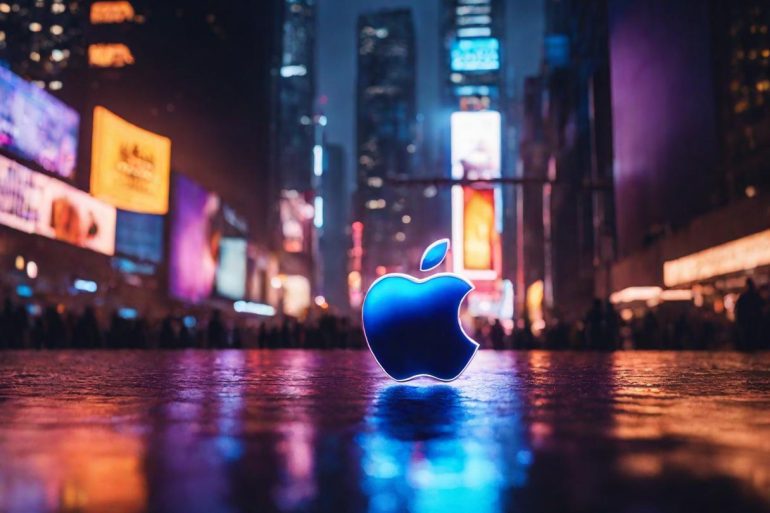- Apple recruits AI experts from Google, establishing a covert AI research facility in Zurich.
- Analysis reveals Apple’s aggressive hiring spree to bolster its global AI team.
- Zurich becomes a significant outpost for Apple’s AI research and development.
- Apple remains tight-lipped about its AI initiatives amidst industry competition.
- Pressure mounts on Apple to announce groundbreaking AI features amid declining stock value.
- Speculation suggests Apple aims to integrate generative AI directly into its mobile devices.
- CEO Tim Cook emphasizes responsible innovation in AI technology adoption.
- Apple’s recruitment strategy targets key figures from Google’s AI division.
- Significant investments in AI startups augment Apple’s AI capabilities.
- Anticipation surrounds Apple’s potential unveiling of groundbreaking AI features at WWDC.
Main AI News:
In a strategic move to bolster its AI capabilities, Apple has successfully recruited numerous artificial intelligence specialists from Google while setting up a discreet research facility in Zurich, Switzerland. This expansion underscores Apple’s commitment to outpace competitors in the development of cutting-edge AI models and products.
An in-depth analysis by the Financial Times, based on extensive scrutiny of LinkedIn profiles, public job postings, and academic research, reveals Apple’s aggressive recruitment drive aimed at expanding its global AI and machine learning team. Since the appointment of John Giannandrea as its top AI executive in 2018, Apple has enticed at least 36 experts from Google, consolidating its talent pool.
While the majority of Apple’s AI workforce is stationed in California and Seattle, the company has significantly expanded its presence in Zurich, with Professor Luc Van Gool from ETH Zurich acknowledging Apple’s establishment of a research laboratory, referred to as the “Vision Lab,” following the acquisition of two local AI startups. These endeavors indicate Apple’s dedication to advancing research into AI technologies that integrate text and visual inputs for enhanced responses.
Despite maintaining a low profile, Apple’s Zurich offices have been actively involved in pioneering research, including the development of AI models akin to OpenAI’s ChatGPT. Notably, Apple has been discreet about its AI initiatives, unlike its industry counterparts Microsoft, Google, and Amazon, which have openly touted multibillion-dollar investments in AI research and development.
Amidst mounting pressure stemming from a decline in its stock value compared to surging rivals, Apple faces heightened expectations to unveil groundbreaking AI features capable of revitalizing device sales. Speculation suggests Apple’s focus on integrating generative AI directly into its mobile devices, potentially revolutionizing AI chatbots and applications by leveraging on-device hardware and software.
CEO Tim Cook has hinted at Apple’s extensive AI research efforts, emphasizing responsible innovation in adopting new technologies. While Apple has a long-standing history of AI product development, including Siri, the company has been actively pursuing advancements in neural network technology, evident in its strategic acquisitions and recruitment drives.
Apple’s recruitment of key AI figures, including former Google executives such as John Giannandrea and Samy Bengio, underscores its aggressive strategy to assemble a formidable AI team. Notably, Apple’s pursuit of talent extends beyond recruitment, with significant investments in AI startups focused on various applications, including image recognition, data processing, and music curation.
Looking ahead, industry experts anticipate Apple’s unveiling of groundbreaking AI features at its upcoming Worldwide Developers Conference, potentially transforming the next iPhone into a voice-activated personal assistant capable of seamless interaction with various applications through advanced Siri functionalities. These developments are poised to redefine the consumer experience, marking a significant leap forward in AI integration within Apple’s ecosystem.
Conclusion:
Apple’s strategic expansion in AI, marked by the recruitment of Google’s talent and the establishment of a European hub, signifies a concerted effort to fortify its position in the competitive AI market. By assembling a formidable team and investing in cutting-edge technology, Apple aims to revolutionize AI integration within its ecosystem, potentially reshaping the consumer experience and solidifying its foothold in the evolving tech landscape.

